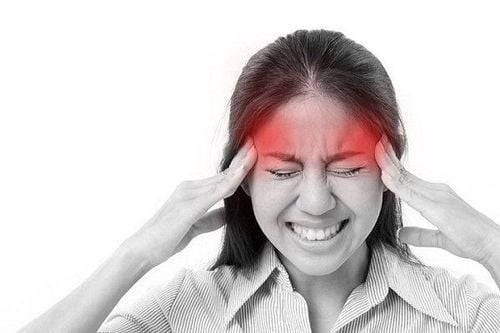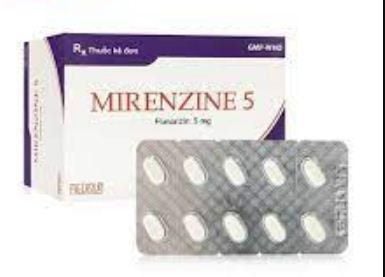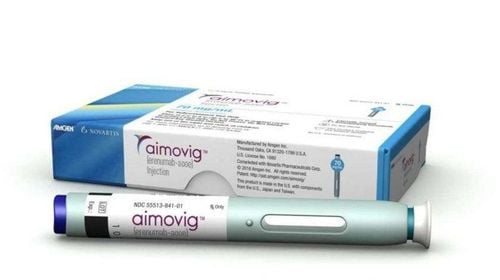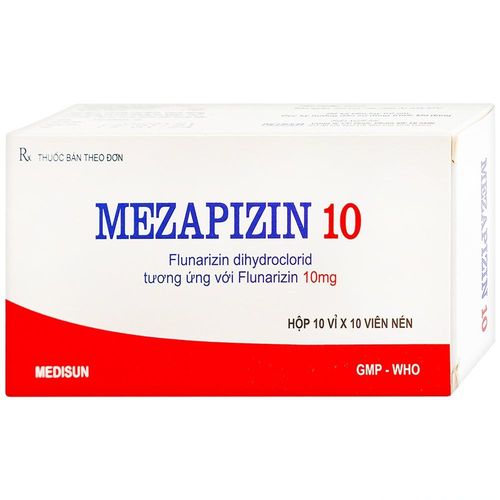This is an automatically translated article.
The article is expertly consulted by Master, Doctor Huynh An Thien - Department of Medical Examination & Internal Medicine, Vinmec International Hospital Da Nang.Migraine Migraine is a chronic headache that can last for hours or days. Presented as recurrent headaches of moderate to severe severity. During the time of pain, the patient is very afraid of light and noise, loud noises, which can lead to nausea and vomiting.
1. What are the types of migraine headaches?
Migraine headaches are 3 times higher in women than in men. Some patients experience intermittent sensations of hot lights, or see a zigzag road ahead, or see nothing in front of them for a moment.
Diseases include 2 main types: Migraine aura and Migraine without aura.
Migraine aura:
Migraine aura accounts for about 10% of cases. The patient has a prodromal phase lasting from a few minutes to 30 minutes, which precedes the pain with the following ocular symptoms: chromosomal opacities, anaphylaxis. Less common prodromal symptoms: Numbness in the hands and feet on one side of the face, transient aphasia. When the above symptoms disappeared, pain appeared with typical features.
Migraine pain has an onset usually on one side of the head, then can spread to both sides. The pain is pulsating and the patient feels a pulsating temporal artery. The intensity of the pain increases gradually and becomes more intense. The pain lasts from about 4 to 72 hours. Besides pain, patients may also have accompanying symptoms such as: Fear of light, fear of noises, nausea and possibly vomiting. If the patient goes to a dark and quiet place, the pain can be relieved.
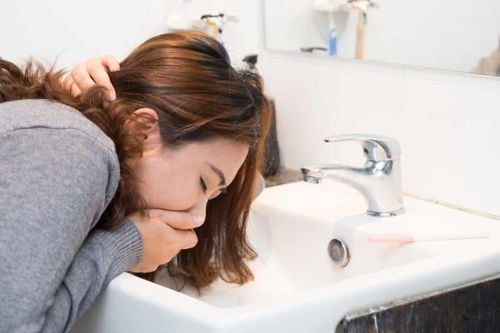
Migraine without aura:
In migraine without aura, the pain is similar to that of migraine with aura, but the intensity of pain is usually less. Although there are no pre-symptoms, patients may have some warning symptoms such as loss of appetite, anxiety. During the pain, there is often an increased sensation of pain in the scalp. The same patient can have both types of seizures with and without aura.
2. Causes of persistent migraines
The cause of migraine is unclear. Studies show that migraines are caused by dilation or narrowing of blood vessels in the scalp and tissues around the brain, causing more blood to be pumped through the brain. Changes in brain activity and chemicals also appear to play a role. Doctors say there are "triggers" to a headache, although figuring out an individual's trigger isn't always easy. Some of the more common triggers include:
Hormones are the leading cause of migraines in women, hormonal changes cause people with a history of migraines to have headaches before or during their menstrual cycle. Menstrual periods, others get migraines during pregnancy or menopause. Medications, such as birth control pills and hormone replacement therapy, can also worsen migraines. Food is also a migraine trigger, including: Wine, beer, cheese, chocolate; abuse of caffeine, MSG, salty foods, and processed foods, skipping meals. Stress can trigger migraines.

Sensory stimuli such as: bright lights and the sun, loud sounds, unusual smells, including pleasant scents; such as perfumes, and unpleasant odors (paints and smoke) can also trigger migraines. Sleep deprivation or too much sleep is a trigger for migraine attacks in some people. Strenuous activity, including sexual activity, causes migraines. Changing weather can also trigger migraines. Some medications can make migraines worse. Family history: If one parent or both has migraine headaches, your child is at increased risk for migraines. People under the age of 40: Migraines most often occur in people between the ages of 30 and 39. In addition, there are some cases where people have migraines that begin before the age of 20. Women are about three times more likely to have migraines than men. Due to hormonal changes in women, migraines can occur just before the start of the menstrual cycle and in some women have very severe migraines for up to three months. early in pregnancy but gradually decreases in the later stages of pregnancy.
3. How to relieve migraine pain at home
Simple measures that can help you relieve headaches at home:
Lie in a quiet, cool, dark room. Place a cold washcloth on your forehead or neck. Do not drink coffee, tea or orange juice. Avoid traveling too much. Try to relax by meditating or listening to music.
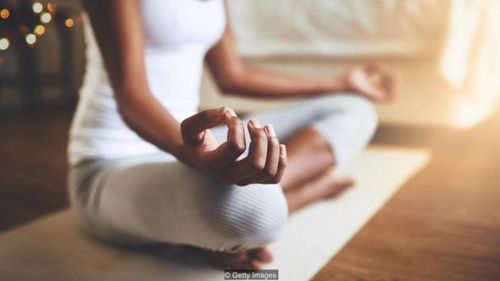
Do not read books or watch television. Do not drive. Some people seek relief from "sleeping through" a pain. Take pain relievers as prescribed by your doctor.
4. How to prevent migraine?
Here are some ways to prevent migraines:
Go to bed and wake up at the same time every day, even on weekends and holidays. Sleeping too much or too little can also cause headaches. Exercise regularly. Overtraining can cause headaches for some people, but research shows that regular, moderate aerobic exercise can make migraines shorter, less severe, and less frequent for some people. with many people and help manage stress. Do not skipping meals. A drop in blood sugar can trigger a migraine. So keep it steady by not skipping meals. Also, drink plenty of water to avoid dehydration, which can cause headaches. Limit stress. Stress is a common cause of headaches. So, take time every day to relax by methods such as: listening to music, walking, yoga, meditation, acupuncture, massage, ...
5. Treatment of persistent migraine at Vinmec Da Nang
Migraine does not cause dangerous complications. However, if the pain persists, it will make the patient tired, affecting the quality of life. Therefore, people of any age, when experiencing symptoms of a migraine attack, should seek immediate medical attention for early treatment.
Department of Medical Examination and Internal Medicine - Vinmec Da Nang International General Hospital was established in September 2017 with many outstanding advantages such as: There are many different specialties, a team of experienced doctors in the fields of medicine and health care. specialized fields, modern equipment system,...
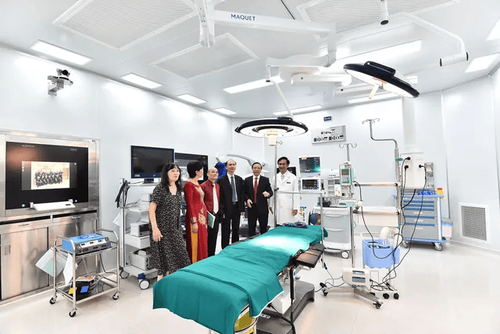
Please dial HOTLINE for more information or register for an appointment HERE. Download MyVinmec app to make appointments faster and to manage your bookings easily.





